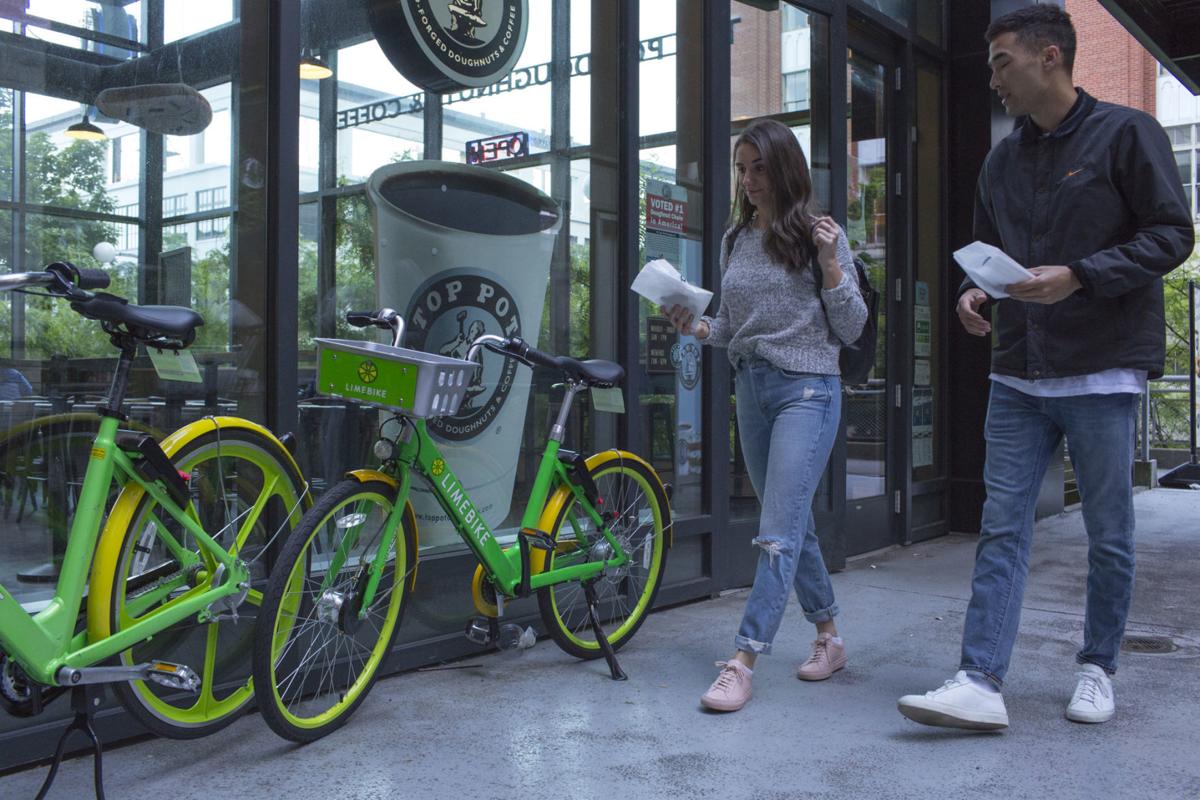The city of St. Louis might not be the only part of the metro area to get a bike-share program sometime this year.
LimeBike, one of four companies that have approached the city about operating there as soon as this spring, says it also wants to rent its lime-green bikes in parts of St. Louis County and Madison County. And maybe elsewhere.
“Our hope is to serve as much of the (metro St. Louis) community as possible,” said Sam Sadle, who works in strategic development for the California-based company.
Sadle said he is trying to work out an agreement with St. Louis County officials to govern how his company could function in the county’s large swath of unincorporated areas.
He said he also has had talks with “a handful of cities” in the county, including Clayton, and briefed the county municipal league last month.
In Madison County, he said, his company is in discussions with the county transit district, which oversees over 130 miles of biking-hiking trails in addition to the countywide bus system, and cities such as Edwardsville and Alton.
In St. Louis, the Board of Aldermen on Friday passed an ordinance authorizing city agencies to carry out regulations for bike-share operations.
In addition to LimeBike, City Traffic Commissioner Deanna Venker said, companies called Ofo, Mobike and Zagster have expressed interest in operating in the city. But whether all four will actually apply for permits to do so remains to be seen.
The city plans to let as many companies that want to operate and meet the permit guidelines compete for customers. Other local governments haven’t said yet whether they will do the same.
Three of the firms that approached St. Louis use the so-called dockless business model, in which bikes are rented for short periods of time without the use of docking stations.
Instead, customers use smartphone apps to find and pay for bikes that can be parked and locked by the previous user virtually anywhere in the company’s operating areas.
In other cities, sidewalks have been the main drop-off spots. To supplement those, St. Louis may reserve some street parking spaces and other sites as “bike corrals.”
Zagster offers an option in which customers are required to return bikes by tethering them to bike racks owned by Zagster or other entities. They can’t just lay the bike on a sidewalk or in a parking lot.
But the racks aren’t as elaborate as the permanent docking stations that are part of the systems set up over the years in more than 100 U.S. cities such as Chicago and Kansas City.
Many of those are run by or have some financial participation by local governments. The privately owned dockless firms, which have rapidly expanded over the last year, require little or no government money.
Pat Kelly, executive director of the St. Louis County municipal league said he expects any agreement worked out between LimeBike and the county could serve as a model for the municipalities to follow.
Jerry Kane, Madison County Transit’s managing director, said dockless bike-share “would be a good complement to our transit system” and that he had been waiting for the concept to reach the United States.
He added, however, “that nobody really knows how the public will perceive it” and how successful it will be.
